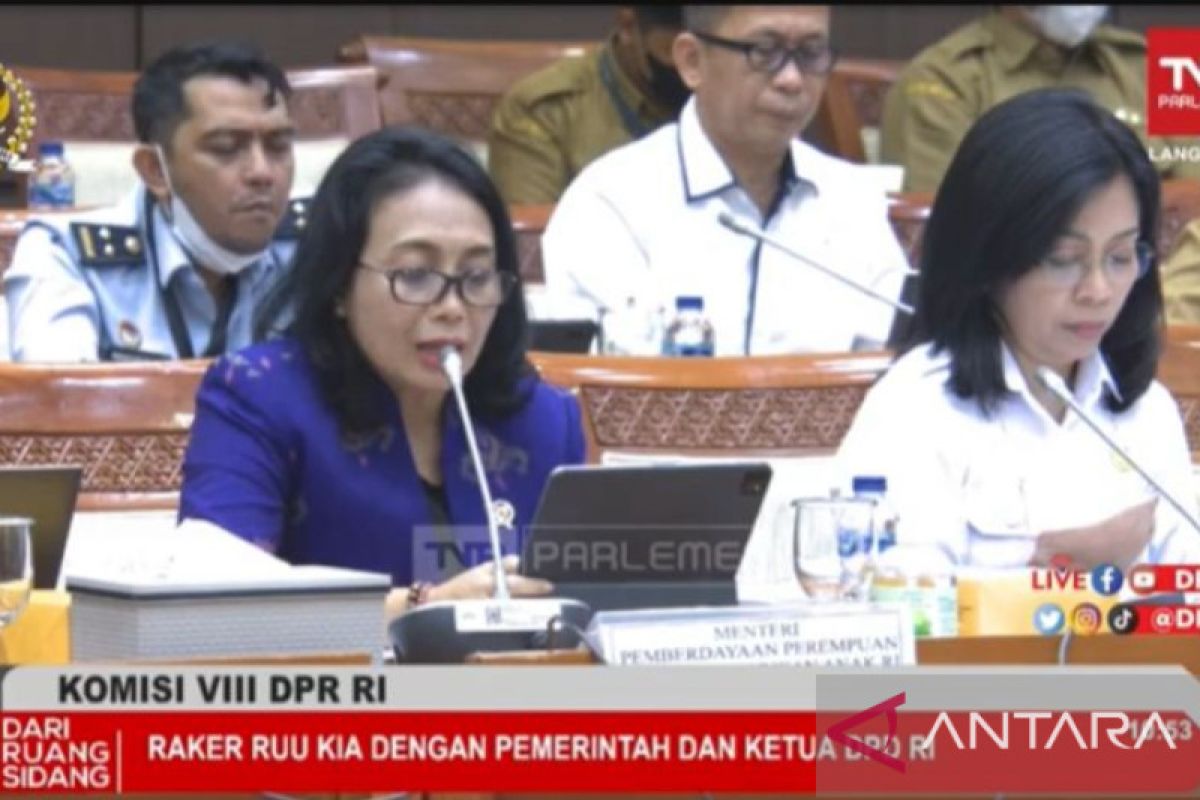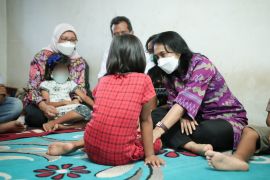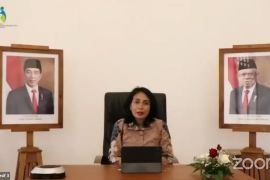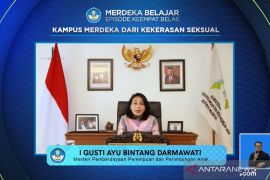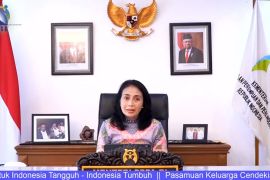Efforts to prevent maternal death, infant mortality, and stunting problems are examples of problems faced by mothers and childrenJakarta (ANTARA) - A prosperous mother will give birth to children, with outstanding development, that will later become a superior and quality generation of the nation, according to Minister of Women's Empowerment and Child Protection (PPPA) Bintang Puspayoga.
“Prosperous mothers will give birth to children, who grow and develop well as superior human resources and future generations of the nation," she remarked during a working meeting with the Indonesian House of Representatives (DPR RI) regarding the Mother and Child Welfare Bill in Jakarta, Monday.
Puspayoga noted that prosperity in mothers encompassed physical, psychological, social, and economic aspects as well as spiritual well-being.
"The various components are a unit that influences each other," Puspayoga stressed.
However, the minister stated that mothers and children are still facing various welfare problems.
"Efforts to prevent maternal death, infant mortality, and stunting problems are examples of problems faced by mothers and children," the minister stated.
To this end, she expressed optimism that the Bill on Mother and Child Welfare would embody the ideals and commitment of the House and the government in comprehensively regulating the welfare of Indonesian mothers and children.
"The government welcomes the initiative from the DPR for drafting the Mother and Child Welfare Bill or the KIA Bill," she stated.
The KIA Bill will regulate several issues, including extending the maternity leave period to six months, resting periods for mothers with miscarriages, providing child care at work, and leave regulations for husbands accompanying their wives after giving birth.
Article 4, paragraph (2), letter a in the Bill states that every working mother has the right to get maternity leave for at least six months.
Letter b states that mothers, who experience miscarriages, will get a rest period of 1.5 months or according to a certificate from the obstetrician or midwife.
Meanwhile, Article 6, paragraph (2), letter a in the Bill stipulates that a husband, who accompanies his wife after giving birth, has the right to accompanying leave for a maximum of 40 days.
Furthermore, Article 22, paragraph (2), letter a in the Bill states support for facilities, infrastructure, and services at the workplace, one of which regulates the provision of daycare.
Related news: Govt aims to improve mother-child health service at vertical hospitals
Related news: Husbands urged to partake in caring for pregnant mothers, newborns
Related news: State guarantees unlimited health services for mothers, children: KSP
Translator: Wuryanti Puspitasari, Resinta S
Editor: Sri Haryati
Copyright © ANTARA 2022
